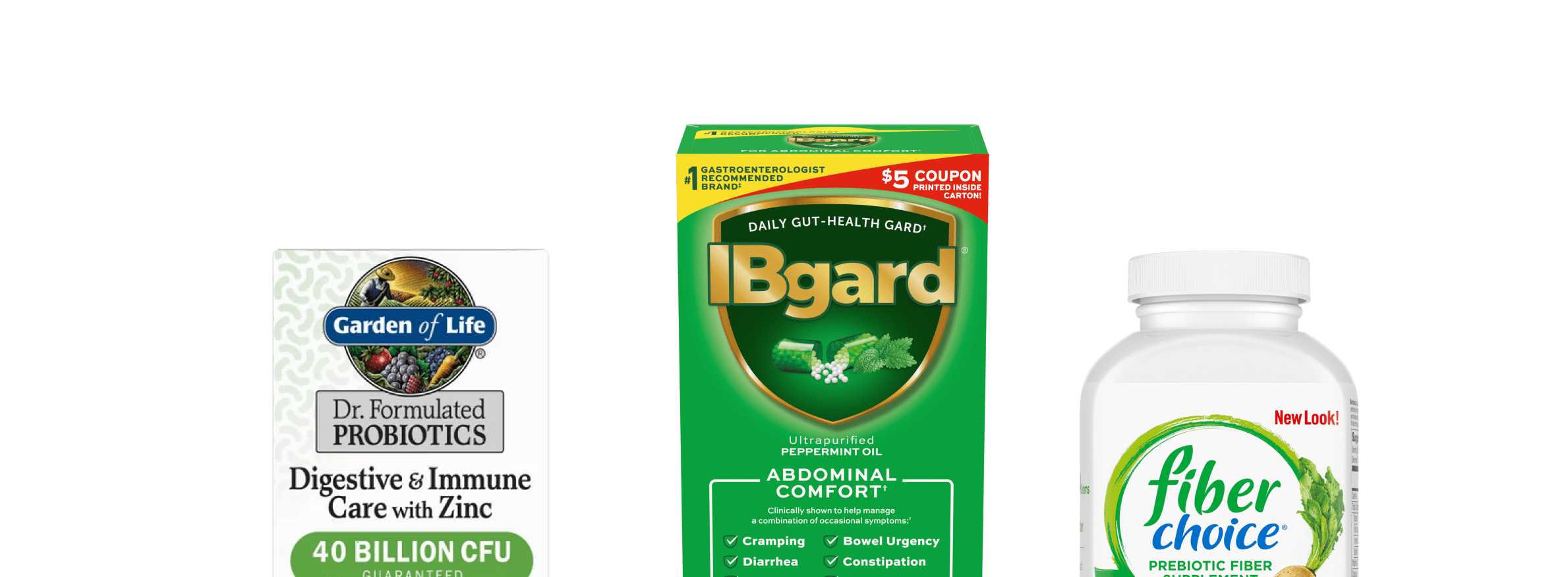Explore the Top-Rated Gut Health Supplement for Long-Term Digestive Health
Explore the Top-Rated Gut Health Supplement for Long-Term Digestive Health
Blog Article
Discover the Trick to Food Digestion and Immunity With Gut Health Support

Comprehending Gut Health
Understanding intestine health is important for total well-being, as it plays a considerable role in food digestion, immunity, and also psychological wellness. The gut, consisting of the stomach system, is in charge of breaking down food, absorbing nutrients, and removing waste. A well balanced gut atmosphere makes sure efficient digestion, enabling the body to make use of nutrients efficiently.
Moreover, digestive tract health significantly influences the body immune system. The digestive tract houses a substantial portion of the body's immune cells, and a healthy digestive tract can assist fend off pathogens and minimize swelling. Disruptions in intestine health and wellness can result in an over active immune response, potentially adding to autoimmune problems and allergic reactions.
In addition, the gut is usually referred to as the "second mind" due to the gut-brain axis, an intricate interaction network linking the gut and the mind. This link affects state of mind, cognition, and emotional health. Concerns such as dysbiosis, identified by an imbalance in intestine bacteria, have been associated with psychological health and wellness problems, consisting of anxiety and anxiety.
The Intestine Microbiome Explained

The intestine microbiome, a varied area of microorganisms residing in the gastrointestinal system, plays a crucial role in keeping gastrointestinal health and overall well-being. Comprising trillions of microorganisms, viruses, fungis, and various other microbes, this facility ecosystem help in the digestion of food, the synthesis of necessary nutrients, and the policy of metabolic processes.
Each individual's intestine microbiome is unique, influenced by variables such as diet plan, lifestyle, genes, and ecological direct exposures. A balanced microbiome sustains optimal digestion by breaking down complicated carbs, producing short-chain fatty acids, and helping with the absorption of nutrients. On the other hand, an inequality, commonly referred to as dysbiosis, can bring about digestion disorders, including short-tempered bowel disorder (IBS) and inflammatory digestive tract illness (IBD)
Research study has actually demonstrated that a varied microbiome is connected with better health and wellness results, highlighting the value of dietary choices in nurturing these bacteria. Foods rich in fiber, probiotics, and prebiotics, such as fruits, vegetables, and fermented items, can advertise a healthy microbiome. Recognizing the gut microbiome is crucial for creating targeted interventions targeted at enhancing gastrointestinal wellness and avoiding stomach conditions.

Link Between Food Digestion and Immunity
A robust link exists in between food digestion and immunity, highlighting the crucial role of the intestine in keeping general health. The intestinal tract is home to trillions of microorganisms that create the intestine microbiome, which considerably influences both immune actions and digestion procedures. This complex community help in damaging down food, absorbing nutrients, and offering crucial metabolites that support immune function.
When digestion is effective, the intestine obstacle remains intact, avoiding dangerous virus from entering the bloodstream (gut health supplement). Conversely, bad digestion can cause an inequality in the microbiome, causing dysbiosis, which has actually been connected to numerous wellness concerns, consisting of inflammatory web disorders and autoimmune diseases. Furthermore, approximately 70% of the immune system resides in the gut-associated lymphoid tissue (GALT), which interacts closely with the gut microbiome. This interplay makes certain that the body immune system can properly compare harmful and beneficial substances.
Tips for Sustaining Digestive Tract Health
Sustaining gut wellness is important for keeping both digestion efficiency and a well-functioning body immune system. To foster ideal intestine health and wellness, take into consideration integrating numerous useful approaches into your everyday regimen.
First, prioritize hydration. Consuming alcohol adequate water sustains food digestion and helps preserve the mucosal cellular lining of the intestines. Furthermore, normal exercise can improve intestine motility and promote a varied microbiome.
Conscious eating practices are likewise crucial. Chewing food completely and consuming gradually can aid digestion and avoid overindulging, which might stress the gut. Handling anxiety via strategies such as reflection, yoga exercise, or deep-breathing workouts can favorably affect intestine health, as stress is known to disrupt gastrointestinal processes.
Incorporating prebiotics and probiotics into your regimen is another effective method. While particular foods will certainly be gone over later on, recognizing the importance of these parts is essential. Prebiotics serve as food for advantageous digestive tract bacteria, while probiotics introduce real-time valuable microorganisms.
Last but not least, prevent extreme use antibiotics, as they can interfere with the equilibrium of digestive tract flora. By following these pointers, you can dramatically add to the maintenance of a healthy intestine, which is necessary for general health and vigor.
Foods That Promote Digestive Tract Wellness

Fermented foods, such as yogurt, kefir, kimchi, and sauerkraut, are abundant in probiotics, which are valuable microorganisms that support gut flora and boost food digestion. These foods can help restore equilibrium in the digestive tract, particularly after antibiotic usage or digestion disturbances.
Along with fermented alternatives, prebiotic foods, such as garlic, onions, asparagus, and bananas, function as nutrition for these probiotics, promoting their development and activity. These soluble fibers sustain digestive tract motility and can relieve problems like irregularity.
Moreover, including high-fiber foods, including entire grains, fruits, beans, and vegetables, is essential for preserving a healthy intestine. Fiber aids in routine defecation and helps stop digestive problems.
Lastly, omega-3 fats found in fatty fish, flaxseeds, and walnuts have anti-inflammatory buildings that can even more sustain gut health and wellness. Stressing these foods in your diet plan can cause a robust gastrointestinal system and boosted immune function.
Final Thought
In verdict, prioritizing digestive tract wellness is important for enhancing food digestion and enhancing immunity. A balanced intestine microbiome, affected by dietary options and way of living factors, plays an important duty in nutrient absorption and swelling decrease. Incorporating fermented foods, prebiotics, and high-fiber choices, together with correct hydration and stress monitoring, can significantly promote digestive tract wellness. By adopting these techniques, people can sustain overall health and vitality, unlocking the prospective benefits of a well-functioning intestinal system.
Recognizing intestine wellness is critical for total wellness, as it plays a considerable function in digestion, immunity, and also psychological health and wellness. The digestive tract houses a considerable portion of the body's immune cells, and a healthy intestine can aid fend off microorganisms go now and decrease inflammation.In addition, the intestine is commonly referred to as the "second brain" due to the gut-brain axis, an intricate interaction network linking the mind and the gut.A durable link exists between food digestion and resistance, highlighting the essential role of the intestine in preserving overall wellness.In final thought, prioritizing intestine health and wellness is important for maximizing digestion and enhancing resistance.
Report this page